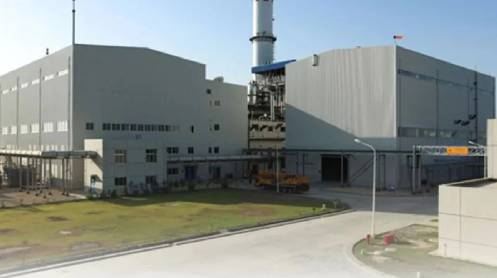KARACHI: The Oil & Gas Regulatory Authority (Ogra) has granted Pak Arab Refinery Limited (Parco) permission to export 50,000 metric tonnes (MT) of furnace oil for July in the current fiscal year, according to an Ogra statement.
Parco, which currently holds 93,000 MT of fuel oil—approximately half of the total 170,000 MT reserves across refineries—sought Ogra’s approval to facilitate the export.
Furnace oil exports have surged to unprecedented levels, with the country exporting over 800,000 MT in the recently concluded financial year, marking a historic high.
Industry insiders attribute this surge to reduced domestic demand, particularly from the power generation sector, which traditionally peaks during summer but saw a significant decline this year. As a result, refineries increased diesel and petrol production for local consumption, leading to a surplus of fuel oil available for export at comparatively lower prices.
“Refineries had to operate more to produce diesel and petrol to meet local demand, resulting in the production of fuel oil in large quantities,” insiders noted. Traditionally, power plants would consume substantial amounts of furnace oil during summer. However, this year, power plants did not uplift furnace oil, leaving refineries with no option but to export it, even at lower prices compared to the local market.
Exporting fuel oil has become essential for refineries to maintain operational efficiency due to storage limitations caused by excessive accumulation. Pakistan’s refining sector has faced periodic surpluses and storage challenges due to diminishing local demand for fuel oil.
Efforts to reduce fuel oil production under the Brownfield Refinery Policy have been delayed, despite industry agreements aimed at enhancing the production of higher-value petroleum products like petrol and diesel while curbing fuel oil output. The policy, initially promising significant reductions in fuel oil production, has faced setbacks, with a recent six-month extension by the government.
Crafted with input from the refinery industry, the policy aims to align local production with Euro V standards, enhancing the output of motor spirit (MS) and diesel while reducing furnace oil (FO) production.
The upgrade policy is expected to enable refineries to increase MS production by 99% and diesel by 47%, while reducing furnace oil production by 78%. Refineries remain cautiously optimistic about future reductions in fuel oil production, contingent upon the timely implementation of policy measures aimed at aligning production with international standards and market demands.
Story by Tanveer Malik





